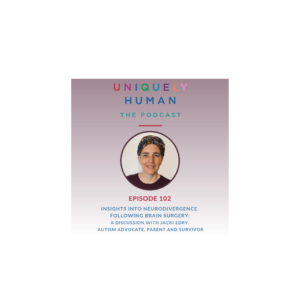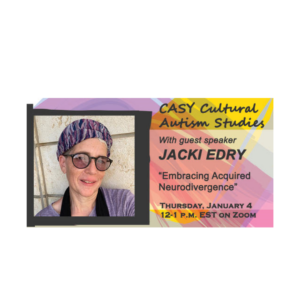
Tune in to The Uniquely Human Podcast
I’m thrilled to announce that recently, I was privileged to be a guest on the renowned podcast- hosted by Barry Prizant, Ph.D., CCC-SLP, and Dave Finch, “The
While many of us habitually make judgments about other people and their actions, the Rabbis clearly teach us: “Don’t judge your friend until you’ve reached his place” (Avot 2:4). This means that we must not judge another person’s actions until we have come to the exact circumstances that led to their acts. Only then can we begin to form judgments, and in most cases, this means that we never have the right to judge others because we will never truly face the exact same situation as theirs.
This book, however, illustrates the notion that if it does somehow come to pass that we find ourselves in the same condition as another person, we can constructively use that experience to better our understanding of their behavior. Such is the selfless approach demonstrated by the book’s author, Mrs. Jacki Edry.
Mrs. Edry has an extensive background in education, having previously worked with autistic children. She wrote her thesis at Hampshire College on the topic of how the educational system can better cope with autistic students. In her initial research on the topic, she theorized about what might trigger autistic children to seemingly act out in the ways that they often do, and periodically shut themselves off from the world. She understood that these so-called misbehaviors are not the results of cognitive or deliberate misanthropic choices, but are generally natural reactions to sensory overload or sensory processing confusion (similar to dyslexia).
Read more in:
share this post on

Jacki Edry is a graduate of Hampshire College and has an extensive background in education, writing, and marketing. She has been exploring the world of autism and neurodiversity for over thirty-five years.

I’m thrilled to announce that recently, I was privileged to be a guest on the renowned podcast- hosted by Barry Prizant, Ph.D., CCC-SLP, and Dave Finch, “The

On January 4th, I had the immense pleasure of sharing my presentation, “Embracing Acquired Neurodivergence,” with the CASY Cultural Autism Studies Online Speaker Series. CASY

I’m delighted, excited, grateful, and highly honored to share with you that the incredible Barbara Bensoussan wrote an excellent article about me, my book, and
Moving Forward is a journey between the worlds of autism, neurodiversity, brain surgery recovery, and faith. It provides a rare glimpse into how sensory and neurological processing affect functioning and thought, through the eyes of a professional, parent, and woman who has experienced them firsthand.
Read More
You can also contact me at info@jackisbooks.com